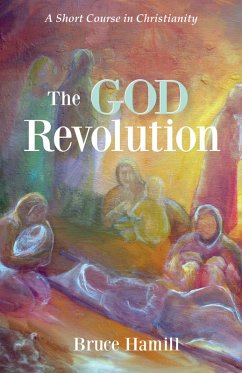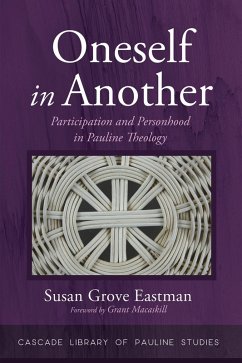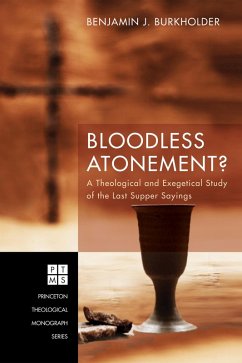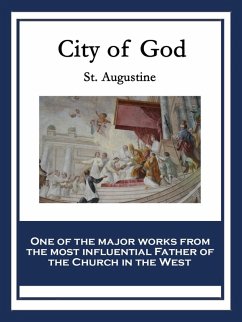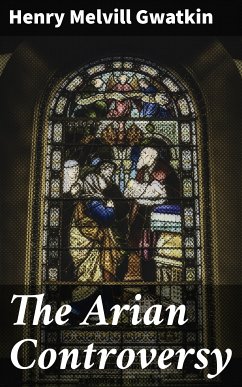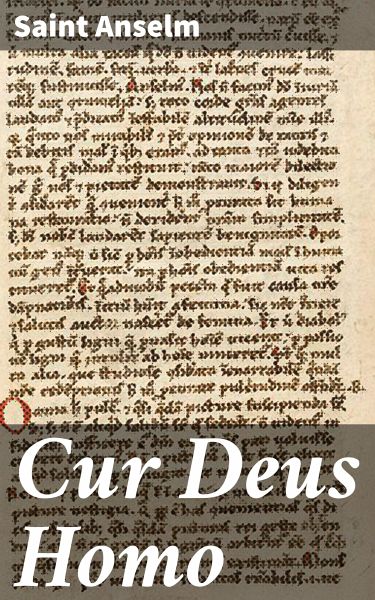
Cur Deus Homo (eBook, ePUB)
Enriched edition. Unveiling Divine Purpose: A Theological Analysis of Atonement and Incarnation
Kommentar: Brackley, Kara / Redaktion: Good Press

PAYBACK Punkte
0 °P sammeln!
In "Cur Deus Homo," Saint Anselm presents a profound theological exploration of the necessity of the Incarnation, set against the backdrop of medieval scholasticism. Writing in a dialectical style, Anselm targets central questions regarding the nature of God and humanity's redemption, employing a meticulous logical framework characteristic of his era. His treatise confronts the mystery of why God chose to become man, arguing that divine justice and mercy are reconciled through the person of Christ, ultimately fulfilling humanity's salvation. Anselm's work not only influenced the theological di...
In "Cur Deus Homo," Saint Anselm presents a profound theological exploration of the necessity of the Incarnation, set against the backdrop of medieval scholasticism. Writing in a dialectical style, Anselm targets central questions regarding the nature of God and humanity's redemption, employing a meticulous logical framework characteristic of his era. His treatise confronts the mystery of why God chose to become man, arguing that divine justice and mercy are reconciled through the person of Christ, ultimately fulfilling humanity's salvation. Anselm's work not only influenced the theological discourse of his time but also laid the groundwork for future Christological debates in both theology and philosophy. Saint Anselm of Canterbury (c. 1033'Äì1109) was a Benedictine monk, philosopher, and theologian whose work thrived at the intersection of faith and reason. His experiences as an abbot and a church leader during a tumultuous period in medieval Europe shaped his inquisitive nature and prompted him to confront the complexities of belief and understanding. Anselm's quest for clarity in faith emphasized rational inquiry, which is evident throughout "Cur Deus Homo," encapsulating his broader contributions to philosophy and theology. This seminal work is essential for anyone seeking a deeper understanding of Christian doctrine and the relationship between divine attributes and human existence. Anselm's eloquent argumentation encourages readers to engage with fundamental questions of existence and faith, making it a must-read for theologians, philosophers, and laypersons alike. In this enriched edition, we have carefully created added value for your reading experience: - A succinct Introduction situates the work's timeless appeal and themes. - The Synopsis outlines the central plot, highlighting key developments without spoiling critical twists. - A detailed Historical Context immerses you in the era's events and influences that shaped the writing. - A thorough Analysis dissects symbols, motifs, and character arcs to unearth underlying meanings. - Reflection questions prompt you to engage personally with the work's messages, connecting them to modern life. - Hand-picked Memorable Quotes shine a spotlight on moments of literary brilliance. - Interactive footnotes clarify unusual references, historical allusions, and archaic phrases for an effortless, more informed read.
Dieser Download kann aus rechtlichen Gründen nur mit Rechnungsadresse in A, B, BG, CY, CZ, D, DK, EW, E, FIN, F, GR, H, IRL, I, LT, L, LR, M, NL, PL, P, R, S, SLO, SK ausgeliefert werden.





